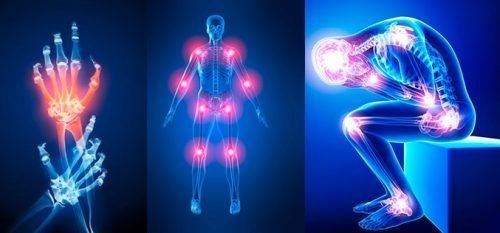
The body of every human being possesses a group of receptors exclusively prepared to interact with substances originated from Cannabis, these substances are called Cannabinoids, as the CBD. These receptors are abundant in the human body and form the endocannabinoid system (ECS), which is extremely important to ensure the well functioning of our body.
In the human body, the CBD influences the receiving activities and encourages the natural production of cannabinoids in our bodies.
Curiously the CBD also affects activities other than the Endocannabinoid System (ECS), being able to interact also with receptors as opioids, dopamine, serotonin. CBD’s ability to influence the many receptors from the human body opens the door to new solutions in medicine and psychiatry.
The CBD has effects in many different receiving systems.
Although CBD being a Cannabinoid, CBD does not interact directly with the two classic receptors CB1 and CB2. Different than that, it influences indirectly the signaling through these receptors (CB1 and CB2) and may increase the level of cannabinoids produced by the body. This explains briefly the reason why, opposite to the TCH, the CBD is not intoxicating.
CBD may also interact with the receptors of dopamine, which play crucial role in the regulation of many aspects of behavior and cognition, including motivation and reward seeking behavior, interacts also with the opioid receptors, known by their role in pain regulation.
Clearing some doubts about CBD and THC
Different from the TCH, the CBD is not a psychoactive substance, both are cannabinoids, but act in different ways in our body.
The THC (Tetrahydrocannabinol) triggers the receivers CB1, which are one of the many receptors of endocannabinoids of the human body. When these receptors are triggered, the effects are of euphoria, anxiety and even paranoia. the CBD does not trigger these receivers CB1, therefore, does not generate these effects.
Actually, CBD can reduce the power of THC and simulate the receivers CB1, helping to block some of the above-mentioned THC effects. For those inclined to anxiety and forgetfulness, CBD is a great alternative to keep oneself in control.
Diseases that can be helped with CBD
CBD counters the effects of THC, and interacts directly with it, some patients state that for the isolated use of THC, the psychoactive effects are too strong, causing, at times, paranoia, dizziness and other unpleasant effects, that is, CBD when combined with THC may ease some of the psychoactive effects. Usually CBD is used for the treatment of diseases like:
- Chronic Pain
- Glaucoma
- Epilepsy
- Dravet Syndrome
- Cancer and Chemotherapy
- Alzheimer’s Disease
- Inflammatory and Intestinal diseases
- Arthritis
- Obesity
- Parkinson’s Disease
- Posttraumatic Stress Disorder (PTSD)
- Stroke
In addition to the diseases mentioned above, there are many others in which the CBD may be a great ally during treatment.
Adapted source from website: https://cannalize.com.br/como-o-cbd-age-no-cerebro-e-no-corpo/